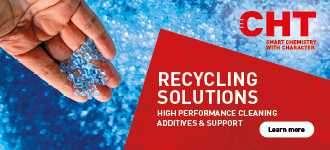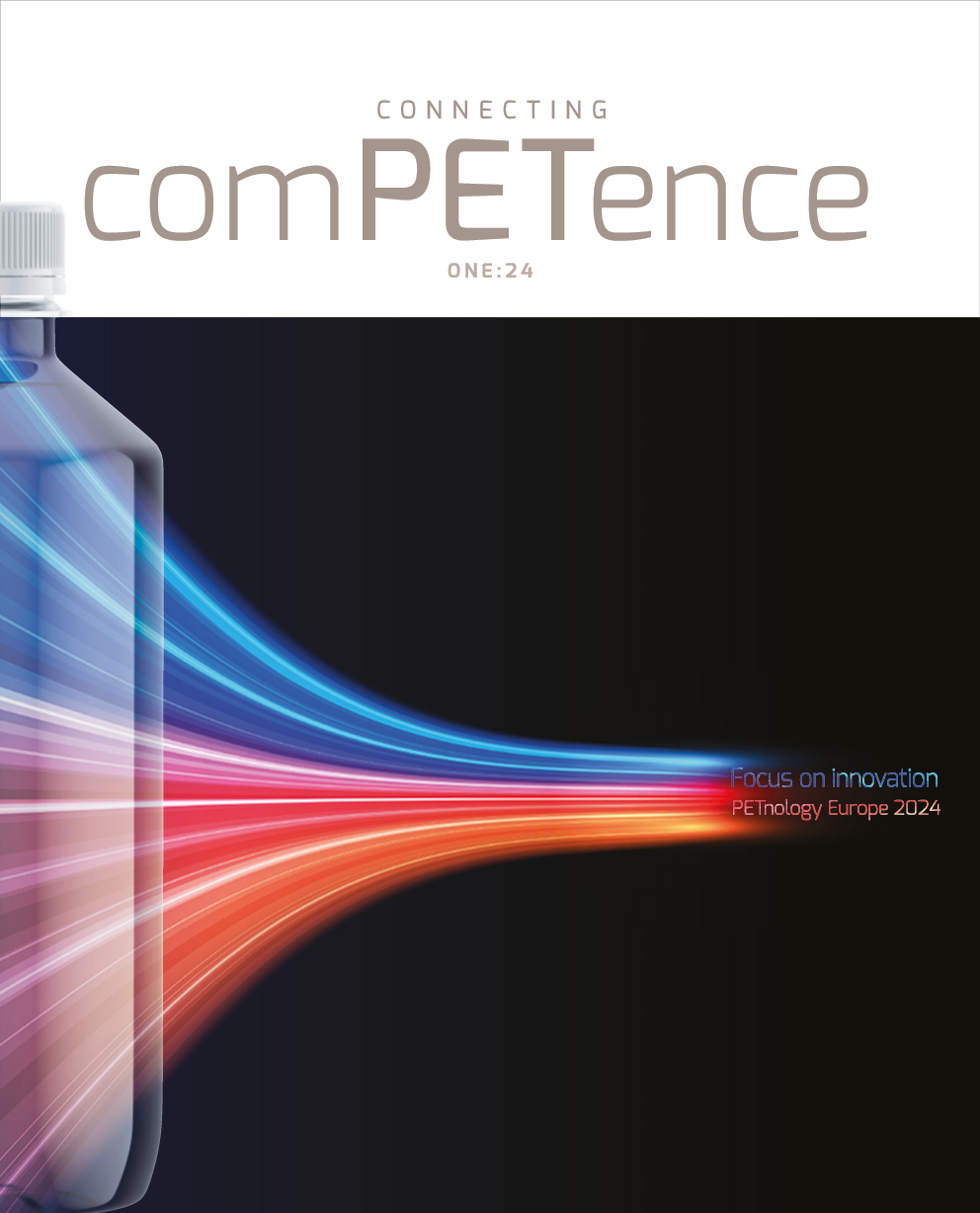The middle of April this year saw the world's first Vacurema Advanced system go into operation in the northeast of England. The system was designed by Erema, the Austrian-based recycling plant manufacturer, for the recycling of HDPE post-consumer waste to make food-contact grade pellets. Having extended their premises at Wilton International Technology Park, Teesside, especially for bottle-to-bottle recycling, Waste Exchange Services Ltd. (WES), a Greenstar Group company, now uses the system to recycle used HDPE milk bottles collected in the recycling chain. The Erema system uses the shredded and washed flakes to produce up to 10,000 tonnes of highquality recycled material on a yearly basis, which then go back into making milk bottles. This marks the launch of bottle-to-bottle recycling for the many millions of HDPE milk bottles that cross the counters in Great Britain. Erema will shortly be shipping a further Vacurema Advanced with the same configuration as the WES system for the same purpose to a recycling company located in Greater London.
| The basic concept of the Vacurema Advanced 1716 TE-VSV at WES corresponds to the Vacurema plant concept which has, in the meantime, proven itself many times in the bottleto- bottle recycling of PET drinks bottles. Modifications were, however, necessary for the processing of polyethylene. Besides the adaptation of the process parameters to the processing temperature – which is considerably lower than the temperature for PET – the profile of the extruder screw in particular was reconfigured. |
In line with the Vacurema Advanced concept, the WES system also has an evacuable pre-treatment unit upstream of the vacuum reactor to intensify the decontamination of the HDPE flakes. The extruder is a degassing extruder with a downstream, self-cleaning fine filter with 100 μm screen mesh and an Erema HG 342 P hot die face water ring pelletiser connected directly to it. The plant has a production capacity of up to 1,500 kg of recycled, food-contact grade HDPE per hour. In England, freedom from contamination and no physiological objections are key factors in making it possible to process HDPE recyclate to make milk bottles again. But there is no washing process that would be intensive enough to prepare the bottle flakes satisfactorily for recycling, reports James Donaldson, founder and Managing Director of WES. With the Vacurema technology, however, we can rest assured that, as a rule, all contaminants and also all toxic substances that adhere to post-consumer waste are removed effectively and reliably. This was demonstrated in thorough tests beforehand. Despite these results we still subjected our new Erema system to a challenge test of our own – which again confirmed that we had made the right choice, says Donaldson.
Besides their own trials with customers, Erema also took part in a large-scale programme in Great Britain to set up a recycling chain especially for HDPE milk bottles. With the backing of the British government and under the guidance of WRAP (Waste & Resources Action Programme), Banbury, Oxfordshire, all the partners involved in the lifecycle of a milk bottle joined forces in this project: from retailers, dairies and milk bottle manufacturers to recycling companies and the machinery and plant manufacturers involved in this process stage. The aim of this project is to return up to 30 per cent of recycled material to the milk bottle cycle in future; Great Britain processes around 130,000 tonnes of HDPE for the production of milk bottles alone. When it came to testing the processing technologies it became evident that out of all the systems examined, only the Vacurema system fulfilled the requirements and was able to turn HDPE flakes from the used post-consumer milk bottles into reusable, foodcontact grade material.
| This was put to the test and confirmed in what are known as challenge tests. In these tests the starting material is contaminated with a defined mixture of chemicals and the recyclate then undergoes extensive chemical tests to analyse any residual contamination there may still be, including practical tests with the products produced from it. In the meantime the HDPE recycling process initiated by WRAP has also been awarded non-objection status by the North American Food and Drug Administration (FDA). |
| Christina Dort Marketing Assistant Tel.: +43 (0)732 3190-105 Fax: +43 (0)732 3190-6305 ch.dort@erema.at |









